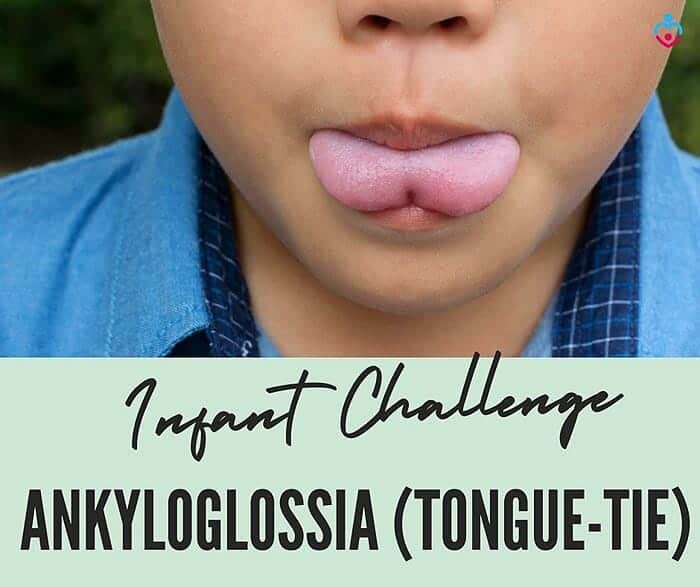
Ankyloglossia is a condition that comes from birth, and it is also known as a tongue-tie. This condition affects the tongue and can cause speech as well as eating disorders in babies.
Babies that suffer from this condition have a frenulum that is too short or attached to the tip of the tongue instead of the bottom of the floor of the mouth. In this situation, the tongue will be held in place and not able to move freely. This condition could be mild or more severe, and it presents differently for each child.
Even if not many babies are born with this condition, tongue-tie tends to be more common in boys than girls. There are four cases of tongue-tie a baby can suffer from according to the severity of the condition.
Jump to:
Types of Ankyloglossia
- Case one is considered a mild tongue-tie where the baby can still move their tongue up and down, left and right.
- Case 2 is a moderate tongue tie when movements of the tongue are more limited.
- At the same time, cases 3 and 4 tend to be the most severe ones. The baby might have complex issues moving the tongue, which makes all oral activities difficult and some even impossible.
![]()
Main symptoms of tongue-tie
If your baby has a case of tongue-tie, you will notice that they present specific symptoms associated with this condition.
- Most babies that suffer from this abnormality have difficulty breathing or saying certain sounds. They can also develop a gap between two teeth due to the position of the tongue. Oral hygiene could also be affected by a tongue-tie condition, more or less.
- Keep in mind that these symptoms are more present in babies who suffer from severe tongue-tie cases and might not be so noticeable in mild cases.
![]()
What causes Ankyloglossia?
The causes of tongue-tie are not clear, but doctors believe it is a genetic condition. If your family has a history of Ankyloglossia, your baby might also be at risk of developing this condition. But otherwise, it can be challenging to predict tongue-tie in babies during pregnancy.
![]()
Breastfeeding a baby with Ankyloglossia
Breastfeeding your baby can be a bit more challenging if they have tongue-tie. But with patience and proper guidance, you can definitely do it successfully.
- Babies with this condition might have trouble with suction and swallowing and even coordinating these two activities, so they can happen to complete a meal.
- The difficulties your baby will have in nursing and latching depend on the severity of the tongue-tie.
- If your baby is not latching correctly, you, as the mother, will experience all kinds of aches as they might bite or chew on the nipple instead of properly sucking through it.
Here are a few tips that will help you nurse your baby even if they have Ankyloglossia!
- Position them correctly. Depending on the severity of the condition, your baby could find it easier to eat if you put them in a facing position. This will allow them to latch more comfortably and directly to eat with not so much hassle. Your lactation consultant will show you different positions for nursing your baby for both of you to be comfortable.
- Try using a bottle. If you notice that your baby can swallow adequately but tend to have difficulty sucking the breastmilk, you might want to pump your milk and feed it through a bottle.
![]()
Treatment for Ankyloglossia
Some cases of tongue-tie that don't interfere with your baby's talking or eating skills, nor create difficulty breathing, might resolve without surgical intervention.
- If your baby has a mild case of tongue-tie, you might be able to help them overcome this condition with speech therapy, special lactation techniques, and a lot of patience.
- If your child requires surgical intervention, it is essential to know three types of these methods that might help him.
- First, your doctor might recommend frenotomy, frenulectomy, or frenuloplasty surgeries, depending on the type of Ankyloglossia they are dealing with.
![]()
All these interventions imply the cutting, clipping, or modifying the formation of the frenulum to reduce the side effects of tongue-tie.
![]()

